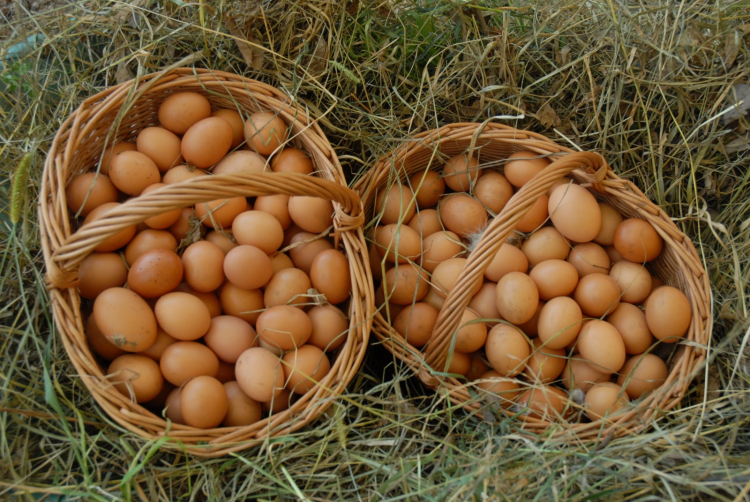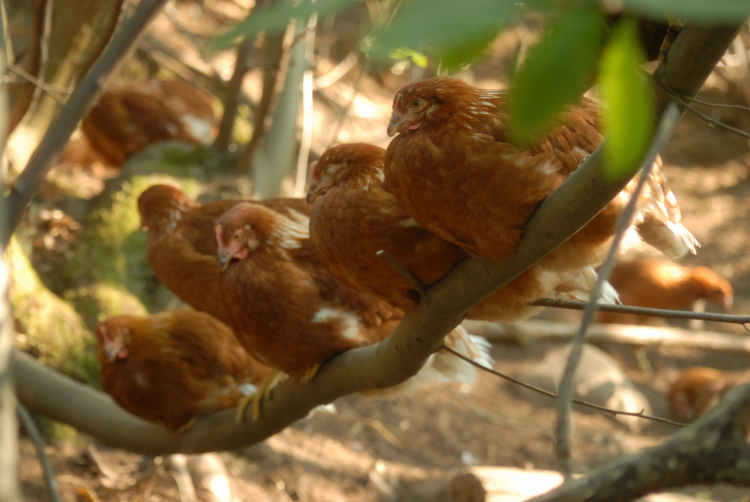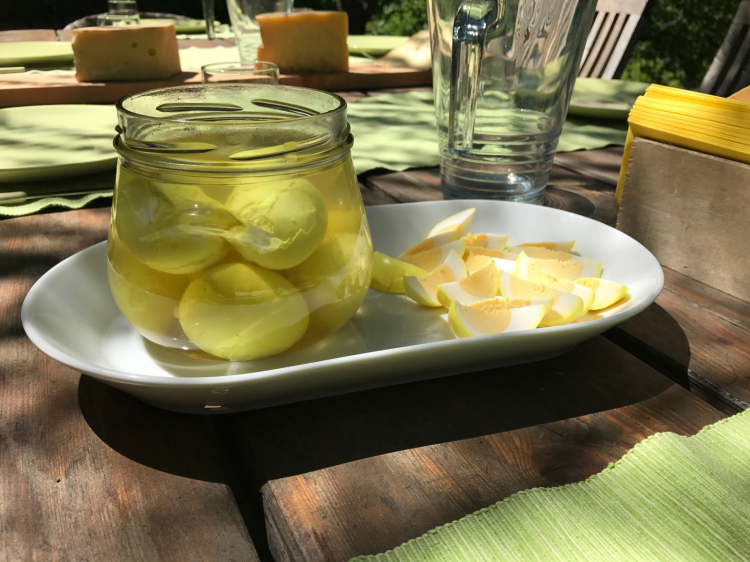«Carlo, I’ll introduce you to some extraordinary eggs» says Cesare Battisti, who’s certainly an ambassador of taste, but also of humanity and endless passion. We meet above Morbegno, in Valtellina: we climb up a road towards Passo San Marco, in Val Brembana. Here you can admire signs from the Republic of Venice, which built this road so the trade with the valleys in Switzerland could be developed (between 1512 and 1797 Valtellina belonged to the Grisons). Five kilometres and when we reach 600 metres above sea level, we must pay attention to another, less noble but more contemporary sign: it depicts some hens. Welcome to Uovo di Selva.
A quick digression: where do hens live? Mostly in intensive farms, overcrowding dark barns. Then there’s the rural-nostalgic version: in small henhouses with a courtyard,
Heidi-style. Finally, the organic: according to this, hens roam free in green alpine pastures, like cows. «No. We’re used to think of hens like courtyard animals, or roaming in a field. In nature, however, hens live in the underwood, free to roam outdoors and build their nest. Here they can also enjoy sun and earth bathing», the latter being essential to keep mites and lice away. The person speaking –
Battisti listens to him with surprise and fascination – is
Massimo Rapella, born in 1970 in Morbegno.
With his wife
Elisabetta he used to run a family community for minors, «we would use this wood that belonged to my parents for our activities. At the time, we had 4 hens». The turning point in 2013: the community closed but the hens became 1200. They live free, in this heavenly hectare that became a farm,
La Gramola, named after the homonymous place in which it is located (the headquarters are in Via Ganda, 80 in Morbegno, tel. +39.3494353296,
www.uovodiselva.it).
Rapella starts from an idea: «If hens could choose they would live in an environment similar to that of the velociraptor, which was in fact a distant relative, in Spielberg’s Jurassic Park»: free forests, with a not too thick vegetation, where they have enough space and time to enjoy their peaceful existence without any stress. No wonder eggs from Uovo di Selva are so good… Rapella takes pride in not controlling any variable. He leaves the hens themselves to take care of production, given they undoubtedly have such a vast know how. As for them, being grateful, they guarantee now around one thousand eggs per day, «but it depends on many elements», starting from the environment, which affects the final product: «if it’s very hot they drink more, so the egg white will be more watery», for instance.


Since hens are free to do whatever they wish, men must only collect the eggs from their nests, in fact more than once a day, early in the morning and at sunset, Sundays and holidays included. And then they must distribute them: only to private clients and restaurants, as
Rapella doesn’t ship the eggs but hands them directly within 24 hours from their deposition, within 100 km. What would be the meaning of making eggs stay on supermarket shelves for days? In fact, this issue doesn’t even arise as the production is already easily sold out and there are waiting lists too, «the other day
Yoji Tokuyoshi called me. He wants my eggs. I told him I cannot supply him as well right now. Maybe in November…». On top of
Battisti,
Uova di Selva are also used by
Giancarlo Morelli, «one of my first supporters», and
Claudio Sadler, Giuseppe Zen, the guys at
Aromando in Milan,
Dac a Trà,
I Tigli in Theoria,
Il Cantuccio…
What’s striking, when walking in the forest among the hens, is the total lack of bad smell, the smell you’d expect from any animal farm. Here the biological cycle appears to be perfectly sustainable. It looks like Rapella has defined the process in harmony with nature. «I feed them with grains, fruit, vegetable. Everything is certified organic. Plus the proteins a forest of chestnut trees can offer». It’s like the Egg of Columbus.

Fantastic hardboiled eggs preserved in vinegar
With these extraordinary eggs
Battisti prepares for instance
Stir fried bruscandoli, Uova di Selva Milanese style and traditional balsamic vinegar, with breadcrumbs and fresh oregano: a simple, rich dish that enhances the raw materials.
Jean Marc Vezzoli made a really 100% Lombard panettone with
Uova di Selva, with candied citrus fruits from Lake Garda, not sugar but local honey and so on. He makes around 80 every year. Pointless to say it’s a rarity for a few lucky people. As for us, until Christmas, we consoled ourselves with an open air meal at the end of our tour at
La Gramola:
Rapella and his wife and three children,
Cesare Battisti with his partner and friend
Antonio Albanese, all enjoying fantastic countryside delicacies. And most of all hens, which arrived steaming and delicious.
È buona la gallina.
La gallina è molto buona, ma non è intelligente.
Come è buona la gallina.
Assaggia questo pezzo senti...
Che buona la gallina...
Come è buona la gallina,
non è intelligente però è molto buona.
(Cochi e Renato)